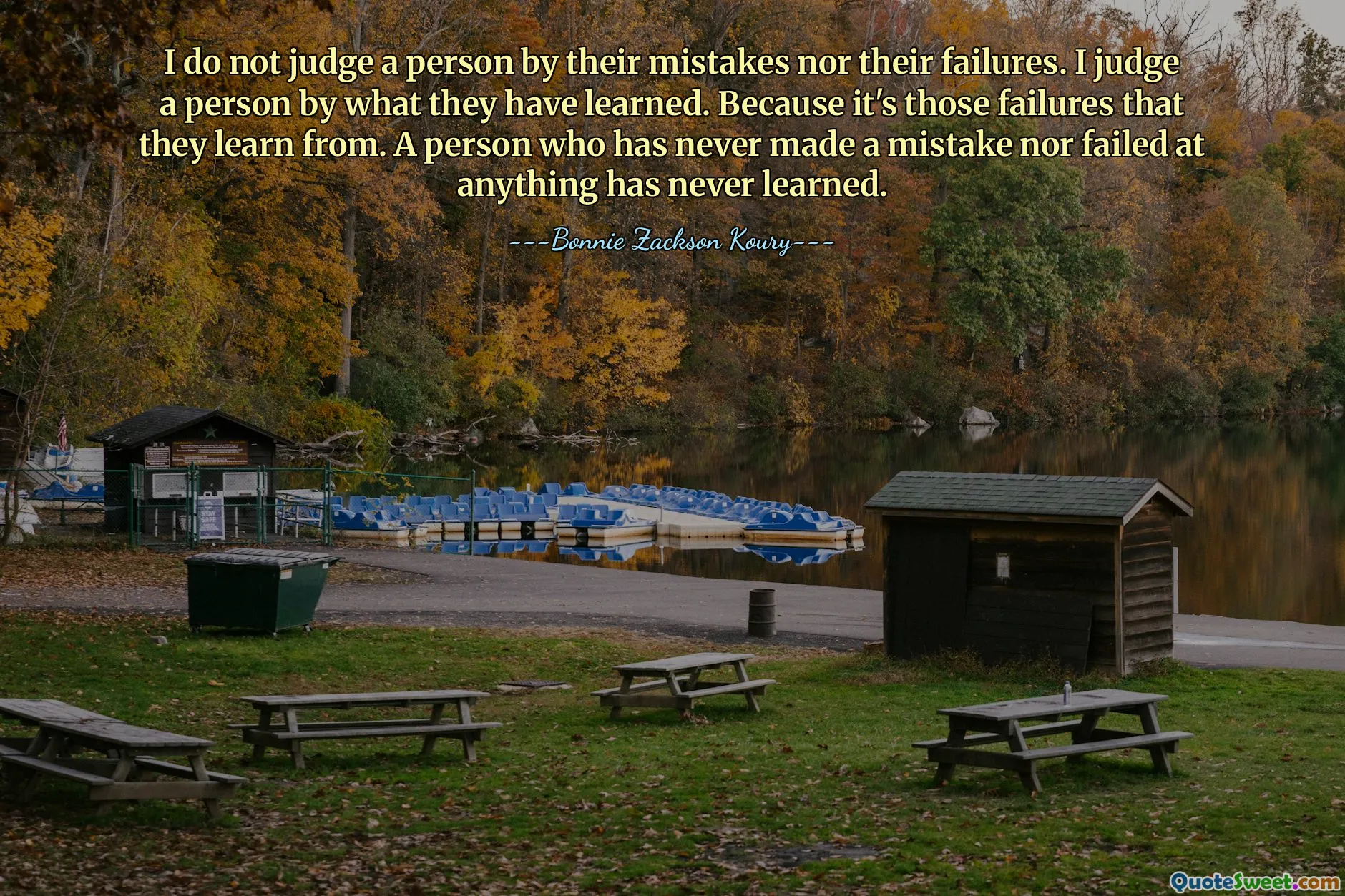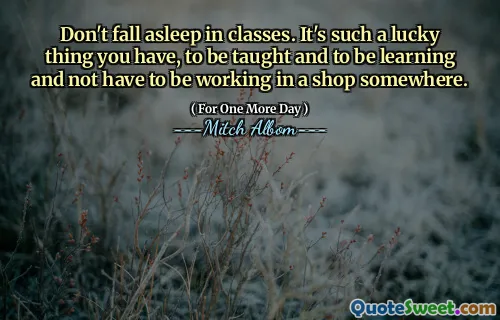
I do not judge a person by their mistakes nor their failures. I judge a person by what they have learned. Because it's those failures that they learn from. A person who has never made a mistake nor failed at anything has never learned.
The essence of this quote emphasizes the importance of growth through mistakes and failures. Society often tends to scrutinize individuals based on their successes or failures, but true judgment should center around one’s capacity to learn and adapt from errors. Mistakes are an inherent part of the human experience; they serve as valuable lessons that shape character, resilience, and wisdom. When we view failures not as defining defeats but as pivotal learning moments, we foster a mindset that encourages continuous improvement and self-awareness. This perspective promotes empathy, understanding that nobody is perfect, and everyone’s journey involves missteps. Encouraging a culture that celebrates learning from faults rather than punishing them can lead to greater innovation, motivation, and emotional development. It motivates individuals to take risks, knowing that failure is temporary and informative rather than indicative of personal worth. Such an outlook reduces fear of failure, which is often a barrier to progress, and highlights the importance of humility, perseverance, and open-mindedness. Ultimately, a focus on learning over perfection nurtures a mindset where failure is seen as a stepping stone toward success, fostering a more compassionate and resilient society. Embracing this approach can transform how we perceive ourselves and others, recognizing that true growth stems from embracing our imperfections and learning from them wholeheartedly.











